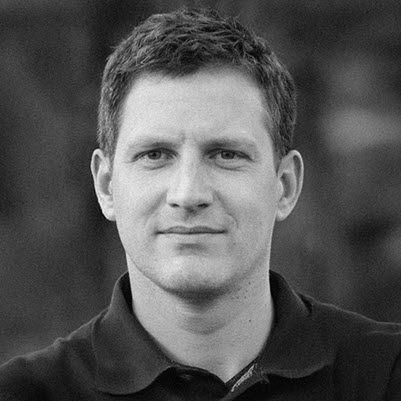The UnCODE System: A Neurocentric Systems Approach for Classifying the Goals and Methods of Cognitive Warfare

Abstract:
Cognitive Warfare leverages advances in science and technology to influence how populations think and behave. There is currently no unified framework for conceptualizing its goals and methods. This paper introduces the Unplug, Corrupt, disOrganize, Diagnose, Enhance (UnCODE) system to classify Cognitive Warfare strategies. UnCODE is neurocentric, focusing on how adversarial actions affect neural information processing in individuals, algorithms, or societies. It defines five goal categories and divides methods into direct and indirect neural access. Being domain- and species-agnostic, UnCODE enables interdisciplinary understanding of attack strategies and serves as a unifying framework for analysing Cognitive Warfare across contexts.
AUTHORS

Faculty of Health, Welfare and Organisation, Østfold University College,
Norway
and
Department of Information Security and Communication Technology,
Norwegian University of Science and Technology,
Gjøvik,Norway
and
Department of Research, Gonzo Solutions,
Trondheim, Norway
Torvald F. Ask is a Neuroscientist. His research is focused within the fields of neuroergonomics and human performance in cybersecurity, cognitive warfare, and psychoneuroimmunology and cognitive control in stress management and disease. Ask holds a PhD in Information Security and Communication Technology from the Norwegian University of Science and Technology. He is currently affiliated with the Faculty of Health, Welfare and Organization at Østfold University College, Norway.
Maritime Academy, Tallinn University of Technology,
Tallinn, Estonia
Dr. Ricardo Lugo is a psychologist with experience as an applied practitioner, university lecturer, and researcher. He has consulting experience with elite sports, education, and health. His current research is focused on human factors and performance in cybersecurity, behavior, and cyberpsychology, and individual and team aspects of cyber incident response.

Faculty of Health, Welfare and Organization, Østfold University College,
Halden, Norway
and
Faculty of Computer Science, Albstadt-Sigmaringen University,
Sigmaringen, Germany
Stefan Sütterlin is professor of cyberpsychology at Albstadt-Sigmaringen University (ASU) in Germany and adjunct professor at Östfold University College (OUC) in Norway. He is a member of the Executive Academic Board of the EU commission's European Security and Defence College. He holds a PhD in psychology from the University of Luxembourg and focuses his research currently on human factors in cybersecurity, cyberpsychology, decision making in hybrid domains, and social engineering and disinformation.

Chief Executive Officer, Beyond Layer Seven,
United States
and
Cognitive Security Institute, Redmond,
Oregon, United States of America
Dr. Matthew Canham is the Executive Director of the Cognitive Security Institute and a former Supervisory Special Agent with the Federal Bureau of Investigation (FBI); he has a combined 21 years of experience in conducting research in cognitive security and human-technology integration. He currently holds an affiliated faculty appointment with George Mason University, where his research focuses on the cognitive factors in synthetic media social engineering and online influence campaigns. He was previously a research professor with the University of Central Florida, School of Modeling, Simulation, and Training’s Behavioral Cybersecurity program. His work has been funded by NIST (National Institute of Standards and Technology), DARPA (Defense Advanced Research Projects Agency), and the U.S. Army Research Institute. He has provided cognitive security awareness training to the NASA Kennedy Space Center, DARPA, MIT, U.S. Army DevCom, the NATO Cognitive Warfare Working Group, the Voting and Misinformation Villages at DefCon, and the Black Hat USA security conference. He holds a PhD in Cognition, Perception, and Cognitive Neuroscience from the University of California, Santa Barbara, in the U.S. and a SANS certification in mobile device analysis (GMOB), security auditing of wireless networks (GAWN), digital forensic examination (GCFE), and GIAC Security Essentials (GSEC).

Department of Mathematical Sciences, Norwegian University of Science and Technology,
Trondheim, Norway
and
Department of Research, Gonzo Solutions,
Trondheim, Norway
Daniel Hermansen is a researcher and the co-founder of Gonzo Solutions. His research is focused on the intersection between computer science and computational neuroscience and its application in fields such as machine psychology and cognitive security, the implementation of software architecture and cryptography in cybersecurity solutions, and communication and coordination between agentic autonomous systems. Hermansen is currently affiliated with the Department of Mathematical Sciences at the Norwegian University of Science and Technology. He focuses on providing solutions related to software architecture and information security. Hermansen is a polymath with experience from fields such as software engineering, mathematics, cryptography, and organic chemistry.

Faculty of Health, Welfare and Organisation, Østfold University College,
Halden, Norway
and
Department of Information Security and Communication Technology,
Norwegian University of Science and Technology,
Gjøvik,Norway
and
Norwegian Armed Forces Cyber Defence,
Lillehammer, Norway
Benjamin J. Knox holds a PhD in Human Factors in Cyber and Information Security from the Norwegian University of Science and Technology (NTNU), and an MSc in Development Management from the Open University (UK). He is a former British Army officer and graduate from the Royal Military Academy Sandhurst (UK). Knox is a senior researcher for the Norwegian Armed Forces Cyber Defence (CYFOR), an Associate Professor at the Center for Cyber and Information Security (CCIS) at NTNU, and an affiliated researcher at the Norwegian Defence Research Establishment (FFI). He also holds an Associate Professor position with the Faculty of Health, Welfare and Organization at Østfold University College, Norway. Knox is currently involved in significant EU-funded cyber related projects (Digital EU and EDF), as well as chairing and supporting NATO activities within the Science and Technology Organisation (STO), and Allied Command & Transformation (ACT) in the field of Cognitive Warfare.
Published In
Journal of Information Warfare
The definitive publication for the best and latest research and analysis on information warfare, information operations, and cyber crime. Available in traditional hard copy or online.
Quick Links
Archive

